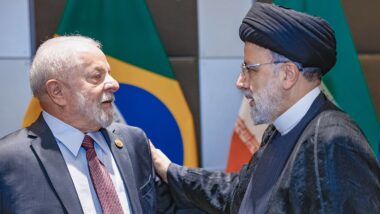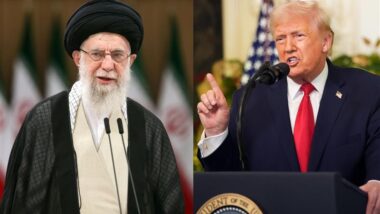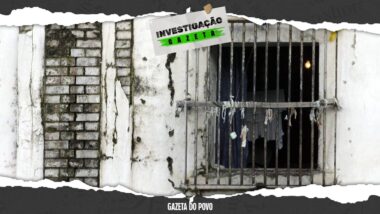
Ouça este conteúdo
The preamble to the Universal Declaration of Human Rights affirms that ‘’the recognition of the inherent dignity and of the equal and inalienable rights of all members of the human family is the foundation of freedom, justice and peace in the world’’. An affirmation, without doubt, beautiful and true but a little abstract. To recognize and defend intrinsic human dignity also has a series of very practical consequences.
The first of these is to have a positive attitude in the face of the emergence of each new human life. Each new human represents a new treasure for society, with all of their potential and mysteries. Consequently, a primary attitude towards population control should be always viewed with reservation. But isn’t it true that society, in a subtle way, is impregnating itself with that attitude? Isn’t the idea of openness to life hesitation seen more and more with widespread hesitation? It is perfectly understandable that a couple, analyzing their particular circumstances, see the necessity to limit the size of their family. It isn´t any surprise that there are concerns in relation to the dangers that hinder the development of a child or adolescent. But, when the notion of “child as an onus’’, or at least as an asset, a very labor-intensive one, permeates all society, or at least a section of it, becoming common sense, so that the main practice and discourse is the limitation of the family to one or at maximum two children, there is something profoundly wrong. If we value each individual by what they are, shouldn´t the emergence of a new human being be welcomed with such a joy that would exceed the eventual toil that its’ care would demand? We are not denying reality: children demand dedication and sacrifice. But isn’t it just like all the other projects, such as completing a course or managing a business? Isn’t it true that, however hard it is, business people tend to want to expand their businesses and open new ones? Well, a new human being is more valuable than any diploma or profit margin.
“A new human being is more valuable than any diploma or profit margin”
And, if there is an exacerbation of population control that applies to humans, there is another perverse manifestation of this mentality that drives its efforts against certain specific individuals: those viewed by many as “inferior” or “imperfect”, being by natural circumstances – like a mental or physical deficiency – or for ideological reasons, like many regimes did denying dignity to certain ethnic, social or religious groups, even resorting to forced sterilization. If these barbarities seem to be a thing of the past, it’s a fact that eugenics maintains their appeal when used to deny the right to live to those that are diagnosed in utero with a condition that will impede them from being “perfect”, according to certain standards. To stand against this type of thinking, the philosophy of the Spaniard Thomas Melendo needs to be stated; “Before the eyes that know how to appreciate them, the underfunded manifest with great clarity that the normal subjects, the authentic titles of the unfathomable dignity of the human being".
Another logical consequence of the recognition of intrinsic human dignity and the rights and liberties that come as a result is our responsibility that the environment, in all its facets – economic, social, cultural, and moral – is coherent with this dignity. One needs to combat incessantly all situations that are not conducive with the special status of human beings; and misery, in all dimensions, is perhaps the worst of them. However much the material degradation stands out when we perceive a miserable situation, the effects are even more perverse, because the poor man is deprived of the minimal conditions to be seen as human: misery rightly denies the tools to be the master of his own destiny, reducing his autonomy.
“Moral misery is as grave, if not more so, than material misery”
Material misery, however, is not the only threat to human dignity. Moral misery, observed when a community has completely lost the notion of wrong and right, is as grave, if not more so, than material misery. It creates the conditions in which people freely take attitudes that are not conducive to their ontological dignity – because not all free human acts are to be recognized as meritorious or justifiable simply for not harming other people´s rights and liberties. The use of drugs, for example, can be included in the list of degenerate activities, for their effects well known to the physical and mental health and for the damage caused to human liberty withdrawing (even if only temporarily) the autonomy of those that use them. Pornography and prostitution are other examples of this type of behavior because they undermine, slowly and unconsciously, the self-esteem and the notion of the value of your own body, and this value that can never be put into monetary terms. A positive view of human beings leads us to seek to overcome all of these situations and to exalt the best we have: the capacity to reflect on ourselves, to search for good (our own, of those that are close to us and of society as a whole), to love.
And this quest for good will only be possible in a society that respects autonomy and liberty, that offers the tools so that everybody has the conditions to pursue their objectives and their realization. This includes not only the fundamental guarantees and democratic principles that need to be crystalized into the judicial framework of the county, but the organization of society that makes people the main protagonist of their own story.



